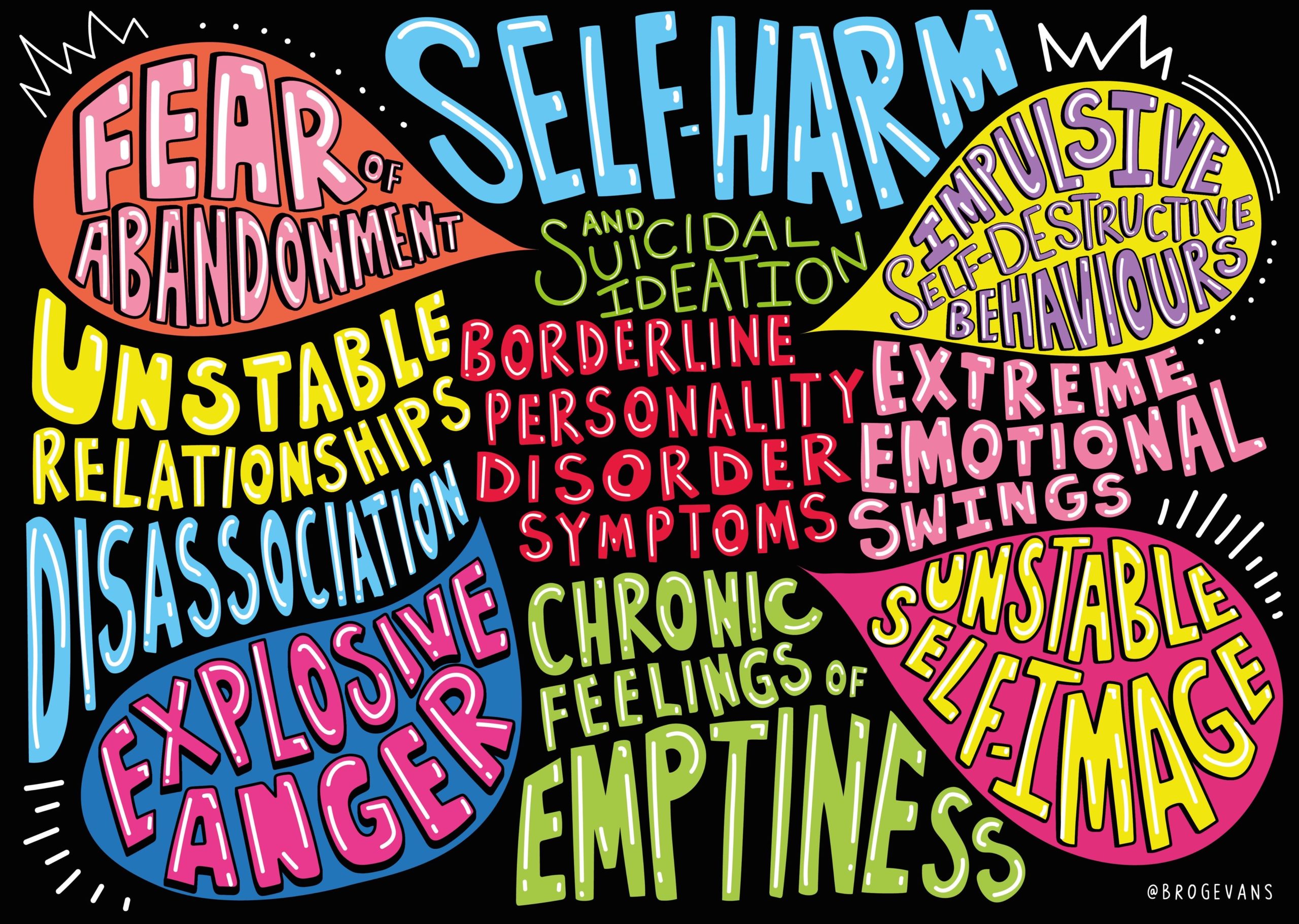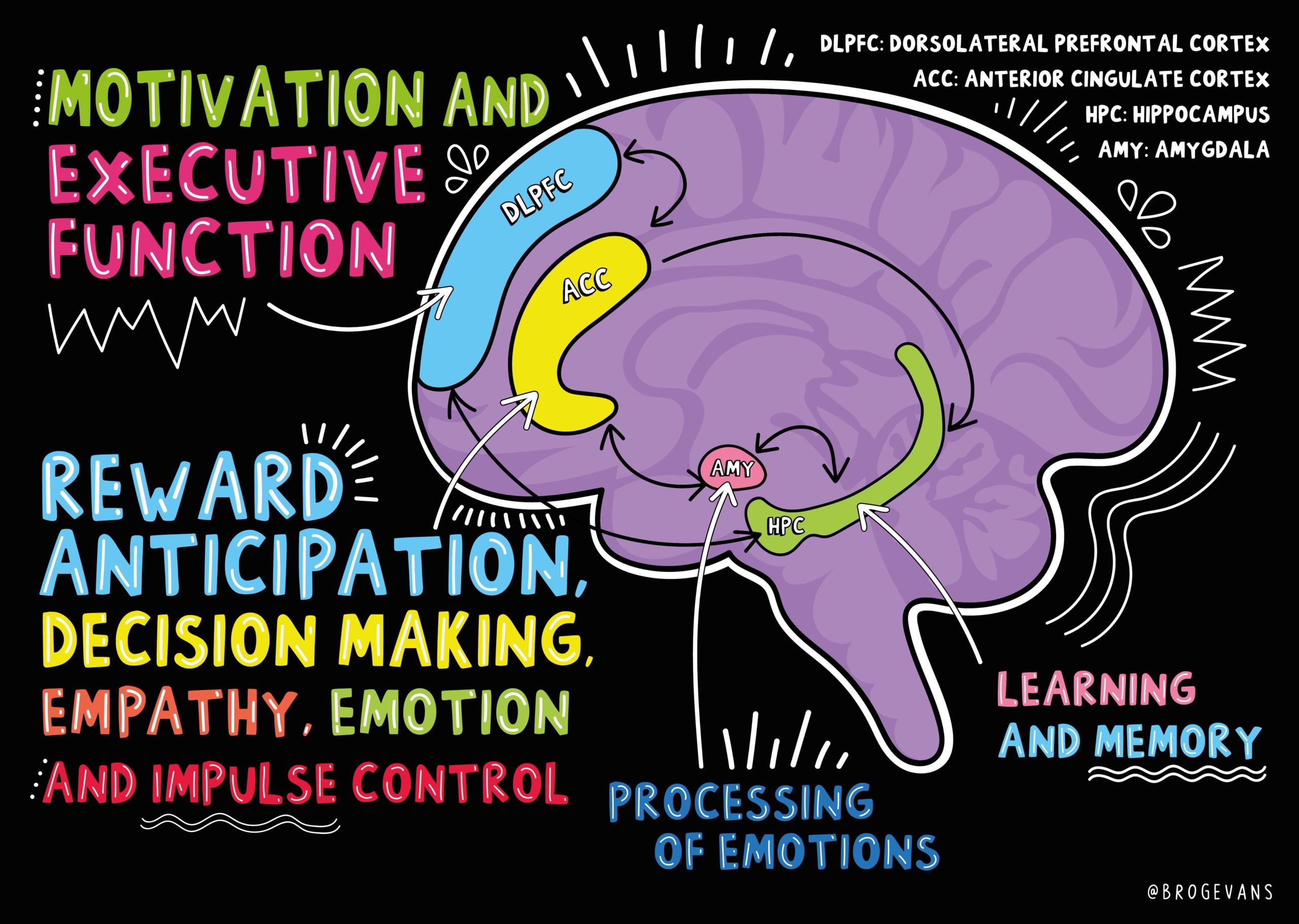We’re On The Borderline
post by Si Martin
You might not know it, but May was the awareness month for a mental illness called Emotionally Unstable Personality Disorder (EUPD) or as it’s more commonly known: Borderline Personality Disorder (BPD)
Hi, I’m Alex, and today I’m taking you on a magical journey into the mind of the ever elusive Borderline (feel free to read that in the voice of Sir Dai Attenborough) and give some tips on how to support someone you know who might be struggling with it!
I’ve been seeing doctors since I was around 13/14. After struggling with self-harm I was then diagnosed with depression, given medication and referred to CAMHS (which in my experience was complete shambles).
When I was 19 I was referred by my GP to a psychiatrist appointment in the hospital, I finally got my appointment after about a year and was then formally diagnosed with EUPD just a couple of weeks before my 21st birthday. The diagnosis came as a shock to both me and my parents. What even is it?! The name made sense but we had never even heard of a personality disorder, so I began researching and talking to friends who also have it, and then everything really started to make sense. It was like a beam of light shone down from the heavens above and I heard angels sing “you should probably get a therapist”.
So what IS Borderline Personality Disorder?
BPD is a mood disorder that affects how a person interacts with others and regulates emotion. This is most commonly due to a combination of genetics and traumatic events that have occurred during childhood, such as parental neglect or different forms of abuse.
There are 9 symptoms that can be grouped into 4 main areas:
- Emotional instability
- Distorted patterns of perception and thoughts
- Impulsivity
- Intense and unstable interpersonal relationships
These symptoms are due to parts of the brain not functioning correctly. Unlike other mental illnesses BPD is not a chemical imbalance but almost a ‘rewiring’ of the brain, which means that medication can’t necessarily cure it. However, in my personal experience (and many others I’ve spoken to in support groups) medication can really help calm symptoms, especially mood swings!
Something not spoken about all too often is the fact that BPD can also be classified into subtypes based on how the characteristics translate in different people. Now, research is your friend and can be really useful but most will lead you to reading about 4 types, but they can be broken down into just two, ‘Classic’ BPD and ‘Quiet’ BPD. The difference between the two is based on how the person will reflect their emotions, a classic type will often reflect outwards, being quite open with others about how they might be feeling and, in many cases, doing whatever they can do avoid abandonment. A quiet type is simply the opposite, they will reflect everything inward (often resulting in self destructive behaviour) and will generally try and isolate or push people away to avoid abandonment.
This is a very simple outline of the two but I find that it’s handy to understand that people with BPD can be very different as there’s such a large set of symptoms!
Keep On Keepin’ On!
A big piece of advice I like to give people who are going through a diagnosis and struggling to find medication is just to keep trooping through it, we’ve made it this far! Don’t give up! I promise you’ll find a medication that works for you eventually, it took about 9 years and a long list of med types for me to be prescribed the one that works! You’ve got this!
You might be wondering, “Alex, you’re saying that medication doesn’t help, so what does?!” and I’m here to tell you it is NOT impulse buying geckos to fill the void. Psychotherapy and Dialectical Behaviour Therapy are the methods used to help those with BPD as they primarily focus on coping, regulating emotions and improving relationships with others!
I’ve had a psychotherapist for almost 3 years now, and even though we sometimes can’t see it ourselves, I can tell that I’m able to cope a lot better now than when we began, and I am so proud of my progression. (Andrea if you’re reading this you truly are the real MVP, thank you for existing)
Therapy is hard; some days you might come out feeling free and uplifted, other times you might feel like you want to just hide in your room for all eternity like a small gremlin that only emerges for snacks and coffee, but it’s just another thing that we have to bare with because healing is not linear! Keep on keepin’ on!
How you can help!
Unfortunately, if you search anything with the key words ‘help’ and ‘BPD’ you will most likely be given article upon article telling the reader how to cope when someone they love has it. BPD has a nasty stigma surrounding it that often makes us out to be angry, manipulative monsters when it isn’t at all the case!
Those with BPD are often deeply empathetic, extremely perceptive, emotionally resilient and love with every ounce of their being. Having a bad experience with one borderline does not mean that every other person suffering with it is the same, so even by doing your own research on it and starting conversations about BPD you can really help lift the stigma. Here’s a few tips on how you can do little things that will help massively:
REASSURANCE!
I may as well get this word tattooed on me at this point, but I will scream it from the rooftops until everyone understands how important it is to us! Actions to show that you care are amazing but sometimes we still need verbal reassurance too. Chronic emptiness is a very common characteristic of BPD, feeling like nobody cares and not feeling loved, but simply reminding us can go such a long way! Especially as small triggers might play on our minds, reassurance can be a great safety net.
PATIENCE!
Now, borderlines are often referred to as ‘emotional burn victims’, because of emotional regulation being affected, small issues might make us feel like the world is ending or that it’s the worst news we’ve ever received. We KNOW we sound like we’re over reacting, but it doesn’t feel that way, so please be patient and sympathetic.
COMMUNICATE!
Communication is very important, paranoia is a big issue for us and we might need to be reassured on issues that don’t even exist, but please try not to take offence if it’s just something our heads have come up with (because it definitely isn’t on our side)
LISTEN!
An important one that I don’t feel is spoken about enough is understanding what dissociation is and knowing some grounding techniques. Dissociation differs for people but it’s just a break in how the mind handles information, extreme stress might cause someone with BPD to feel like they’re numb and unable to move or even watching themselves from the outside! But some grounding techniques like getting a hot drink, putting on some music or something to watch can go a really long way in helping someone out of the dissociative state.
UNDERSTAND!
Personally, something that helps me is actually knowing my background and why I might’ve developed BPD. Whilst this isn’t something that everyone finds helpful as some trauma can be too painful to discuss, I find that knowing where I’m coming from helps people understand why I might react a certain way or be upset about certain things! This links back to the communication side of things, and I think it actually benefits both people involved!
So that’s it folks, hopefully my rambling makes some sort of sense and informed you on something you weren’t previously aware of! BPD is a tricky one, which is why we need to create more conversations about mental illnesses that are lesser known and erase the stigma that surrounds them!
Thank you for taking the time to be here and read this, and please remember there is so much support out there for you whether you’re struggling with BPD or not!
If you feel like you can relate to a lot of the symptoms please don’t be afraid to ask your GP about a diagnosis, I highly suggest some of the articles listed below to read too!
https://themighty.com/2019/01/borderline-personality-disorder-physical-symptoms-bpd/
Shoutout to @brogevans for the graphics in this post too!
Enjoy this post? Feel free to share
2 comment/s
2 thoughts on “We’re On The Borderline”
Leave a Reply
More posi-content
Have you found a creative way of overcoming self-harm and keeping your head above the waves? Share your experiences to inspire others!
find out more

Keep going beautiful, what a brave thing to do. I’m sure you will help many people in return it will help you xxx
Thank you Alex, you are a wonderful human being, much of what you so eloquently wrote resonates. Keep pushing forward my sweetheart the world is and will be a far better place for having you in it championing those of us who struggle with mental health issues. Thank you xxx